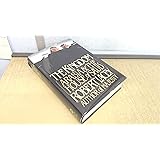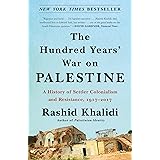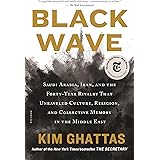
Download the free Kindle app and start reading Kindle books instantly on your smartphone, tablet, or computer - no Kindle device required.
Read instantly on your browser with Kindle for Web.
Using your mobile phone camera - scan the code below and download the Kindle app.

OK
 Audible sample Sample
Audible sample Sample 


Inside the Kingdom: Kings, Clerics, Modernists, Terrorists, and the Struggle for Saudi Arabia Audio CD – CD, November 4, 2009
- LanguageEnglish
- PublisherTantor Audio
- Publication dateNovember 4, 2009
- Dimensions6.4 x 1.1 x 5.3 inches
- ISBN-101400113377
- ISBN-13978-1400113378
Books with Buzz
Discover the latest buzz-worthy books, from mysteries and romance to humor and nonfiction. Explore more
Similar items that may deliver to you quickly
Editorial Reviews
Review
About the Author
Actor Stephen Hoye is a graduate of London's Guildhall and a veteran of London's West End. An award-winning audiobook narrator, he has won thirteen AudioFile Earphones Awards and two prestigious APA Audie Awards.
Product details
- Publisher : Tantor Audio; Unabridged CD edition (November 4, 2009)
- Language : English
- ISBN-10 : 1400113377
- ISBN-13 : 978-1400113378
- Item Weight : 10.1 ounces
- Dimensions : 6.4 x 1.1 x 5.3 inches
- Customer Reviews:
About the author

ROBERT LACEY is a renowned British historian, the author of numerous international bestsellers, and the historical consultant on the award-winning Netflix series The Crown. He wrote The Crown: The Official Companion, Volumes 1 – 2. For nearly forty years, Lacey has been writing about Queen Elizabeth II and her extraordinary life, making him an expert on her long reign and the royal family. Majesty, his pioneering biography of the Queen, is a landmark study of British monarchy – a subject on which Lacey lectures around the world, appearing regularly on television.
Customer reviews
Customer Reviews, including Product Star Ratings help customers to learn more about the product and decide whether it is the right product for them.
To calculate the overall star rating and percentage breakdown by star, we don’t use a simple average. Instead, our system considers things like how recent a review is and if the reviewer bought the item on Amazon. It also analyzed reviews to verify trustworthiness.
Learn more how customers reviews work on Amazon-
Top reviews
Top reviews from the United States
There was a problem filtering reviews right now. Please try again later.
Lacey starts with "Angry Face," Juhayman, and his followers, including the expected "Mahdi," who seized the mosque in Mecca (Makkah) in 1979. (This event is also covered well by Trofimov, in The Siege of Mecca: The 1979 Uprising at Islam's Holiest Shrine ). The author selected a wonderfully appropriate epigraph for this section, from Dostoevsky: "Nothing is easier than to denounce the evildoer. Nothing is more difficult than to understand him." Lacey did a commendable job in explaining the grievances of those being overwhelmed by the "future shock" that was roiling the Kingdom as a result of the influx of money and foreigners (and their ideas) following the sharp increase in oil prices after 1973. This event, plus the revolt of the Shia, in the eastern town of Qateef, in the same year, had the net effect of nudging Saudi Arabia to a much more conservative governmental social policy, yes, in effect, co-opting a portion of Juhayman's agenda... and the women disappeared from the TV, and the "Opera House" remained closed for many a year! Lacey also covers the Saudi-American alliance of the `80's, ironical in retrospect, openly supported "jihad," certainly when it was fighting the "godless" Soviet Union in Afghanistan. And now both countries suffer from the "blowback," in CIA parlance. Part Two deals with the second decade of the 30 year period, the `90's. The author again commences with an all too appropriate epigraph, this time from Edward Gibbon: "So intimate is the connection between the throne and the alter that the banner of church has very seldom been seen on the side of the people." The seminal event in this decade was Saddam's invasion of Kuwait, and his expulsion, lead by an American coalition. The net effect on the Kingdom, who saw American female soldiers driving, which was emulated by their Saudi counterparts, was to again nudge the Kingdom into a more conservative mode. Still, despite the various "fetishes" developed by the religious police, say, against red roses on Valentine's day, the country continues to be overwhelmed by Western (and world) influences, and sadly, the upholders of tradition saw nothing wrong in the influx of fast food restaurants, which led to an "epidemic" of diabetes. Paralleling events in the Kingdom, Lacey devotes space to events in not so far off Afghanistan, where the "students," (the Taliban) were seizing power, and welcomed Bin Laden from the Sudan. The last third of the book starts with "15 flying Saudis," the events of 9/11, and the aftermath, and the Kingdom's own "9/11", which occurred on May 12, 2003, when three upscale compounds were attacked by suicide bombers in Riyadh. Clearly Lacey empathizes with the modernizing goals of now King Abdullah, who had been de facto ruler of Saudi Arabia since King Fahd's stroke in '95, but only obtained the full title after his death in 2005. He closes his epilogue poignantly, with the King praying longer one evening after seeing the progress at KAUST, the university that bears his name, slower than he had hoped.
There is a small "cottage industry" which publishes books, and promotes articles that depict the Kingdom as "mysterious," that wants to "rip the veil" off Saudi society, that "exposes" the Kingdom, that produces sheer fantasies of life in the Kingdom. Lacey might have foregone a few book sales by not following this gamut, but for those who want to understand the country (and even ponder how we in the West perceive the country), this book is an essential read. The author has an extraordinary range of contacts in the Kingdom, and has woven the stories of real Saudis into his story, such as the "jihadis," Mansour Al-Nogaidan and Khaled Al-Hubayshi. Overall, through the sheer number of Saudis who were willing to speak "on the record," you had a sense that they trusted Lacey to tell the story in a balanced way, which I think he has. Tis a shame that it will be one more book on the Kingdom that will be banned by their Ministry of Information.
I loved the way Lacey utilized Saudi parables, as Saudis themselves do, to make a point, with my favorite being "The Donkey from Yemen." Lacey should also be commended for correctly translated the meaning of "Tash ma Tash," the Saudi sit-com, unlike the authors of a couple other books on the Kingdom.
Quibbles? Well, I have a few, and they only underscore the difficulty for a foreigner to get it "all right," but often they can, even better than a Saudi, due to the perspective, and "lack of baggage," including tribal ones. Per Lippman, in Inside The Mirage: America's Fragile Partnership with Saudi Arabia it is unlikely American women were in Al Kharj before 1950, not 1944, as Lacey indicates (p 9). There would have been no "hilal" moon (or any other), on Muharram 01, 1400 (p 22). I'd love to know how the M113 armored personnel carrier was a "success" story of the Vietnam War (p 32). Al-Nakba (the disaster) is usually associated with the Palestinian expulsion of 1948, not the defeat of `67 (p 56). Steve Coll, in his The Bin Ladens: An Arabian Family in the American Century says that there are two versions of how Osama's father, Mohammed, lost his eye, but both occurred in Ethiopia and neither involved soccer; Lacey says that it happened in the Sudan, as a result of a soccer game (p 58). Concerning the formation of "Al Qaeda", the BBC documentary "The Power of Nightmares, directed by Adam Curtis, gives a much more plausible explanation its origins - it was invented by Americans, (!!) for the trials of the 1993 bombers of the WTC, legally, so that RICO laws could be utilized, which involve "conspiracy" and an organization. Later, Bin Laden co-opted the term! It is extremely unlikely that Bin Laden had (has) a "database" of names of all the muhahideen and their contact details, save in his brain (p 148). "Only" three compounds in Riyadh were attacked on May 12, 2003 - the Oasis compound was not (p 244). And Lacey entitles a chapter on the women of Saudi Arabia the "girls" of Saudi - and not a single "girl" was in the chapter (p 274).
Overall, though, a thoroughly researched, and balanced book, written to illuminate Western and in particular, American readers on Saudi Arabia, (Lacey, a British writer even explains that Sandhurst is the "West Point of England.") and should be read in conjunction with Lacey's earlier work, The Kingdom: Arabia and the House of Sa'Ud Though I'm sure Lacey would demur that "it is beyond the scope of this course," should not all Americans ponder the progress made after each countries "9/11" concerning the issues he only discusses about the Kingdom, be it educational policies, human rights, detention facilities, employment of youth and counteracting those who advocate endless conflict with "the other." An essential 5-star read.
The Saud's descend from Muhammad bin Saud who in the mid 18th century aligned with Muhammad al-Wahhab to create a religious-warrior nexus which provided the movement considerable impetus in conquering substantial territories beyond its traditional settlement in Riyadh. It wasn't until the ascendence of Ibn Saud that the Kingdom of Saudi Arabia was formed. A crucial alignment with the British and the discovery of oil ensured that the Kingdom had a good foundation to operate off.
The book itself has two sections largely due to the fact that much of it seems to be revised, and that seems to be the fundamental flaw in the narrative. The period pre-9/11 is covered beautifully- the siege of Mecca which gave the religious wing an upper hand, the Shia Intifada in the East, the alignments in the Gulf war. Its only 9/11 and post 9/11 that the author does not seem to be able to control what needs to be in the book and the latter quarter of the book reads like a hagiography of King Abdullah.
Saudi Arabia is anachronistic in its social and democratic credentials- loads of money, but limited freedom to protest and significant restrictions on women (there are some interesting poignant anecdotes to back these in the book), what the book achieves is shed light on how the canny House of Saud has managed to balance the powers and yet manage the contradictions of modernity and traditional values. This is a must read for anyone seeking to understand the Kingdom
Robert A. Hall
Author: "The Coming Collapse of the American Republic."
The rise of Osama bin Laden is very well accurately portrayed and the author has been prolific in his sources, including personal interviews.
As a resident of Saudi Arabia, many of the characters are well know to me and I have met a few of them - this, of course, does a lot to bring the book to life for me. Having said that, I would not hesitate in recommending this as an introduction and explanation to what is currently going on in Saudi Arabia and the wider Middle East. The upheaval in Libya, Bahrain, Egypt etc becomes a lot clearer after reading books such as this.
Thououghly recommended if you have any interest in the region.













